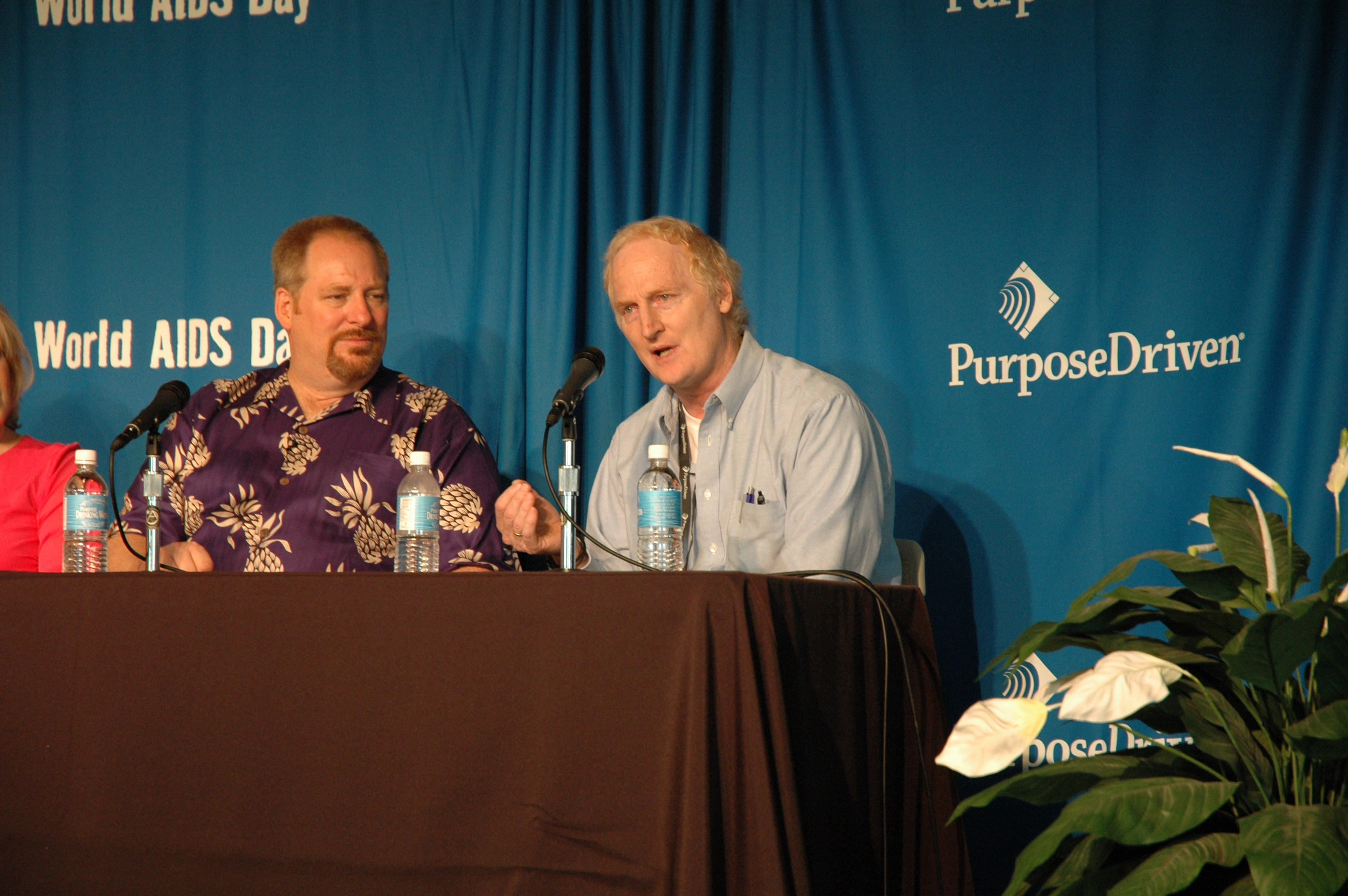
LAKE FOREST, Calif. (BP)–A senior research scientist with the Harvard Center for Population and Development Studies once advocated the use of condoms and clean needles for the prevention of the spread of HIV/AIDS. Now, after evaluating the ABC Model of AIDS prevention championed in Uganda, Edward Green says promoting the values of fidelity and abstinence is far more effective than just promoting correct condom use.
Green shared his insights during a “Rethinking AIDS Prevention” portion of the “Disturbing Voices” HIV/AIDS conference Nov. 29-30 at Saddleback Church in Southern California.
With more than 30 years of experience in public health in Africa, Asia and the Caribbean in family planning and reproductive health, Green has focused on AIDS prevention since the emergence of the pandemic. He has evaluated AIDS prevention efforts in Uganda and was perhaps the first researcher to make Uganda’s ABC program known to the rest of the world.
According to his report, “A Primer on the ABC Model of AIDS Prevention,” the “A” stands for Abstaining from sex or delay of sexual debut; “B” stands for Being faithful or reducing the number of sexual partners; and “C” stands for correct and consistent use of Condoms.
“Advocates of the ABCs often use the term to mean a primary emphasis on abstinence/delay of sexual debut and faithfulness/partner reduction, with condom use being a secondary but necessary strategy for those who do not or cannot practice abstinence or fidelity,” he wrote.
Noting that Uganda provides the clearest case study of a successful ABC approach, he stated, “HIV prevalence peaked in Uganda at 15 percent in 1991, and fell to 5 percent by 2001. During this period, abstinence increased among youth and condom use increased somewhat. Most critically, ‘B’ behaviors (fidelity and reduction in the number of sexual partners) increased dramatically.” (Note: Although the Ugandan government sometimes reports that prevalence peaked at 30 percent nationally in 1990, Green’s evidence substantiates that is true only for its capital city, Kampala, and perhaps one rural district of Uganda.)
“The ‘B’ [behavior] is most important,” Green told the Saddleback conference. “The ‘A’ is important, but most Africans are not abstaining. Most are married and faithful, contrary to Western perception. We think that Africans have wilder and crazier sex than Americans, but they don’t.”
He went on to say that all the elements of the ABC approach are necessary, “although the emphasis placed on individual elements needs to vary according to the target population.”
For youth, the first priority should be to encourage abstinence or delay the start of sexual activity, he said. For adults, the first priority should be to promote mutual fidelity with an uninfected partner. For people at high risk of exposure to HIV, the first priority should be to promote consistent condom use.
“Condom adoption is sometimes assumed to be a simpler behavior change to adopt than that of abstinence or faithfulness,” Green said. “Yet condom use, especially correct and consistent condom use, is also a difficult and demanding behavior change.”
In his report, he noted, “Part of the proof of this observation is the disappointing low levels of consistent condom use after more than 20 years of condom promotion in the developing world.”
In the same session via a video presentation, Janet Museveni, first lady of Uganda, shared her husband President Yoweri Museveni’s concern that the new war of AIDS is even worse than the civil war from which Uganda has emerged.
A Christian, she said she turns to the Bible for her answers. Accordingly, she endorses the ABC model for AIDS prevention for different groups of people. She stresses that the A of Abstinence is for children; the B of Being faithful is for families and married couples; the C of Condom use is “for those individuals who chose to live dangerously.”
The death of two of her very good friends to AIDS at their prime in life has strengthened the first lady’s resolve to fight AIDS through education and treatment development.
She urged pastors in the United States or any part of the world to be ambassadors of God on earth by always providing a message of right and wrong.
–30–
















